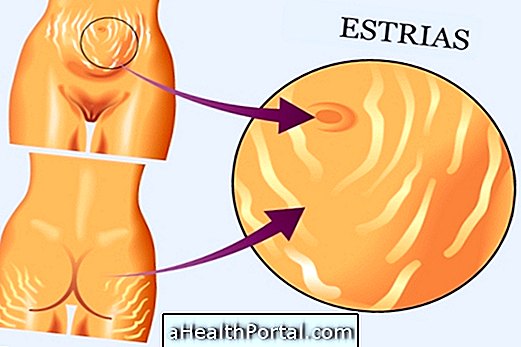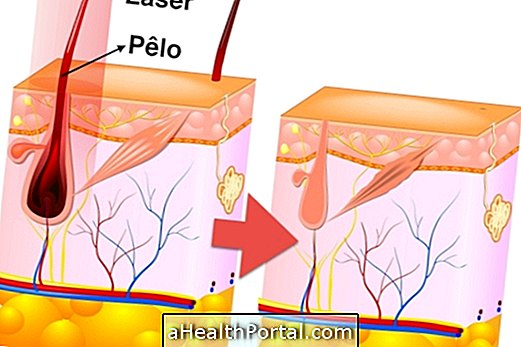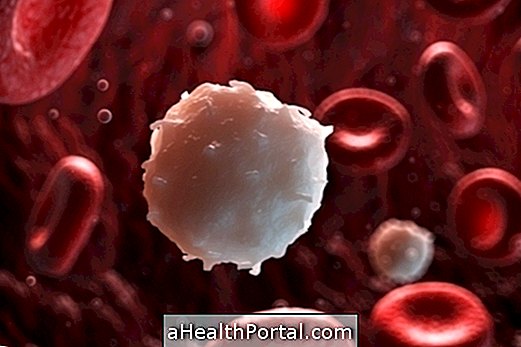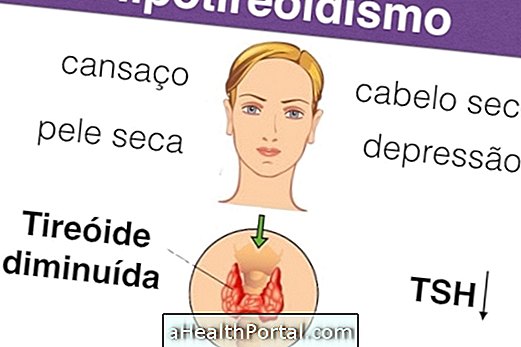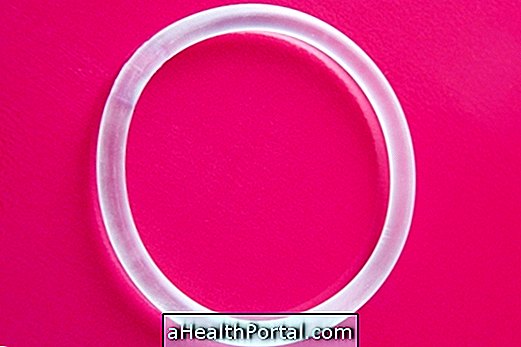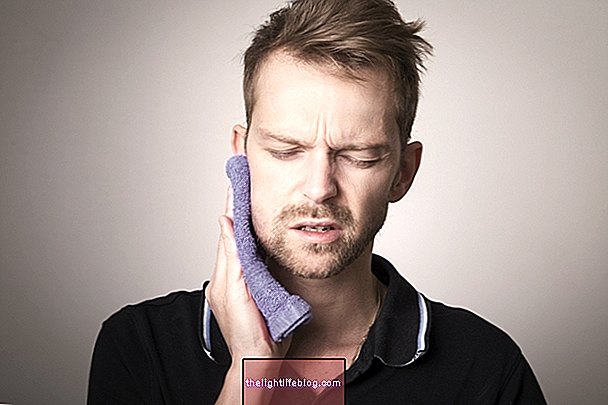Hair loss is usually not a sign of alarm, as it can happen quite naturally, especially during the cooler times of the year, such as autumn and winter. In these times, hair falls with more because the root of hair is less irrigated by nutrients and blood and this can increase hair loss. However, this fall should decrease at warmer times of the year, such as spring and summer.
In addition, people who often use hair straightening products, often apply iron or make hairstyles that can break their hair, may also have more pronounced hair loss.
Hair loss after health treatments, such as chemotherapy for cancer, for example, is relatively normal but should always be referred by the doctor before starting treatment, so it is not a cause for concern when it comes up.
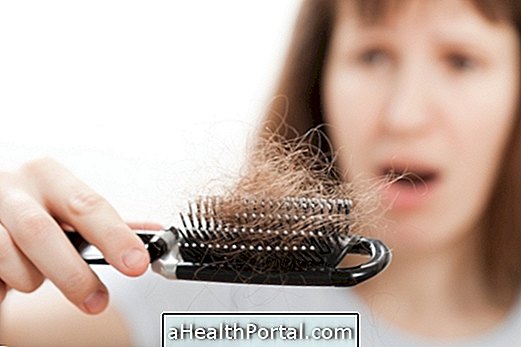
1. Excessive stress
One of the main causes of hair loss is excessive stress, both physical and mental. This is because stress shock after a traffic accident or after diagnosis of a serious illness, for example, can change the cycle of hair strands, causing them to fall.
In other cases, stress may not be the main cause of hair loss, but it can worsen hair loss that already exists for another reason. Know the main consequences of stress.
- What to do : It is advised to try to reduce the stress load by participating in leisure activities, not only to treat hair loss, but also to ensure a better quality of life and avoid other more serious problems that may arise over time, such as irritable bowel or depression.
2. Excess vitamin A or B
Although it is relatively rare, the excessive presence of vitamins A or B complex in the body can contribute to hair loss. This situation is more frequent in people who are taking supplements with any of these types of vitamins for a long time.
- What to do : Food supplements should only be used with the advice of a doctor or nutritionist to avoid reaching the recommended maximum doses. If there is a suspicion of excess of these vitamins, stop the supplement and consult a doctor.
3. Pregnancy
Hair loss is relatively common in postpartum women, not only because of the hormonal changes that continue to occur in the body, but also because of the stress of labor. Generally, this hair loss arises in the first 3 months after giving birth and can last up to 2 months.
Although it is rarer, hair loss can also arise during gestation, appearing to be related to the increase in the hormone progesterone that can dry out the hair, making it weaker and brittle.
- What to do : The ideal is to avoid getting stressed by hair loss, as it is a natural process that will improve over time. See 5 strategies to combat postpartum hair loss.
4. Hormonal changes
Just like during or after pregnancy, hormonal changes are a major cause of hair loss and can happen at various times in life, especially during adolescence. In addition, women who switch pills or who start a new hormonal contraceptive method may also have temporary hair loss.
- What to do : If you are having a severe hair loss, you should consult a dermatologist or, if you are taking a contraceptive, talk with your gynecologist to evaluate the possibility of changing the method.

5. Use of antidepressants and other remedies
Some classes of medications, such as antidepressants, anticoagulants, or high blood pressure medicines may have the side effect of contributing to hair loss, especially at the start of treatment or when they are being used for a long time. Other drugs that may have this effect include methotrexate, lithium, and ibuprofen, for example.
- What to do : If there is suspicion that hair loss is being impaired by the use of any medicine, you should inform the doctor who prescribed it, and consider switching to another medicine.
6. Anemia
In addition to excessive tiredness and pallor, anemia can also cause hair loss, since the wires receive less blood, nutrients and oxygen, becoming weaker and brittle. Generally, anemia is caused by lack of iron, but it can also arise from other factors, such as decreased vitamin B12 in the body.
- What to do : In most cases, anemia arises from lack of iron and therefore the first form of treatment is the use of iron supplements as well as increased intake of foods with iron such as red meat, mussels, salsa or white beans. See the main types of anemia and how to treat each one.
7. Hypothyroidism
Hypothyroidism happens when the thyroid is not working properly and so there are several types of hormones that are not produced properly or in sufficient quantity. Some of these hormones are very important for the metabolism and growth of hair strands and so when they are missing they can be the cause of hair loss.
- What to do : If a change in thyroid function is suspected, an endocrinologist should be consulted to confirm the diagnosis and initiate appropriate treatment, which is usually done with iodine supplementation. Learn more about how hypothyroidism is treated.

What to do to treat hair loss
To treat hair loss you can use specific products, remedies or supplements such as:
- Capillary lotion with 5% Monoxidil : It should be applied twice a day on the scalp. It helps to revitalize the scalp, increasing blood irrigation and strengthening the existing wires, decreasing their fall;
- Shampoos and lotions specific for hair loss;
- Nutritional supplements for hair loss, such as Pill Food or organic silicon, which contain nutrients involved in the growth and health of hair strands. PillFood price, on average 30 reais, and organic silicon.
- Dermatologist-directed hair loss remedies such as Finasteride, Propecia, or corticoid infiltration into the hair root. Learn more at: Remedies for baldness.
In addition, it is also important that food contains all the nutrients necessary for the body, as hair loss can be caused by very restrictive diets, low in calories and poor in animal proteins.
Check out a list of foods that help fight hair loss.
Treatments for hair loss
Some treatments that may be recommended by the dermatologist to treat hair loss are:
- Low-power laser, which should be applied once a week for at least 10 weeks. It stimulates the regeneration of the matrix that has lost hair and prevents healthy hair from falling, progressively improving hair loss. Price: each session costs on average 50 reais;
- Carboxitherapy, as it increases blood irrigation of the scalp and facilitates the penetration of chemicals for hair loss. Price: each session costs on average 70 reais;
- Hair implantation is a surgical technique in which hair strands are implanted directly into the scalp. Despite the immediate result, after about 6 months, these wires tend to fall and can cause damage to the scalp. The price ranges between 10 and 25 thousand reais;
- Hair transplant is a surgery where a hair strip is removed from the back of the hair and implanted in the front, near the forehead or where there is greater need. It is an option for anyone who is getting bald or bald.
The choice for the best treatment should be made by the dermatologist, after evaluation and diagnosis of hair loss.

